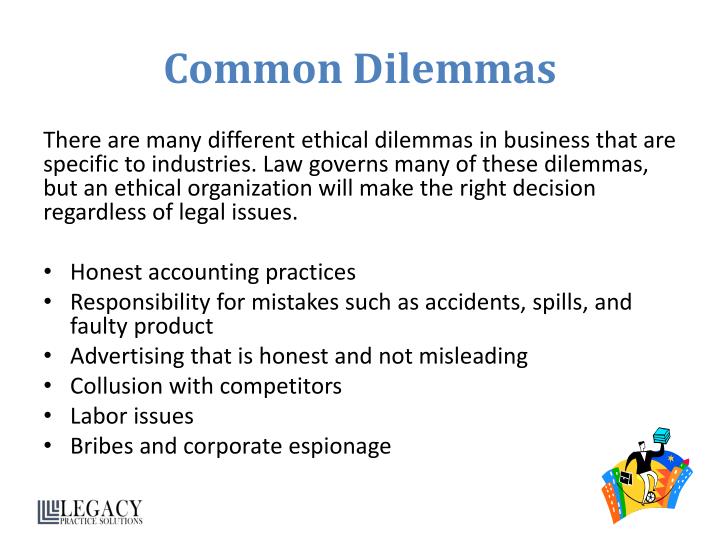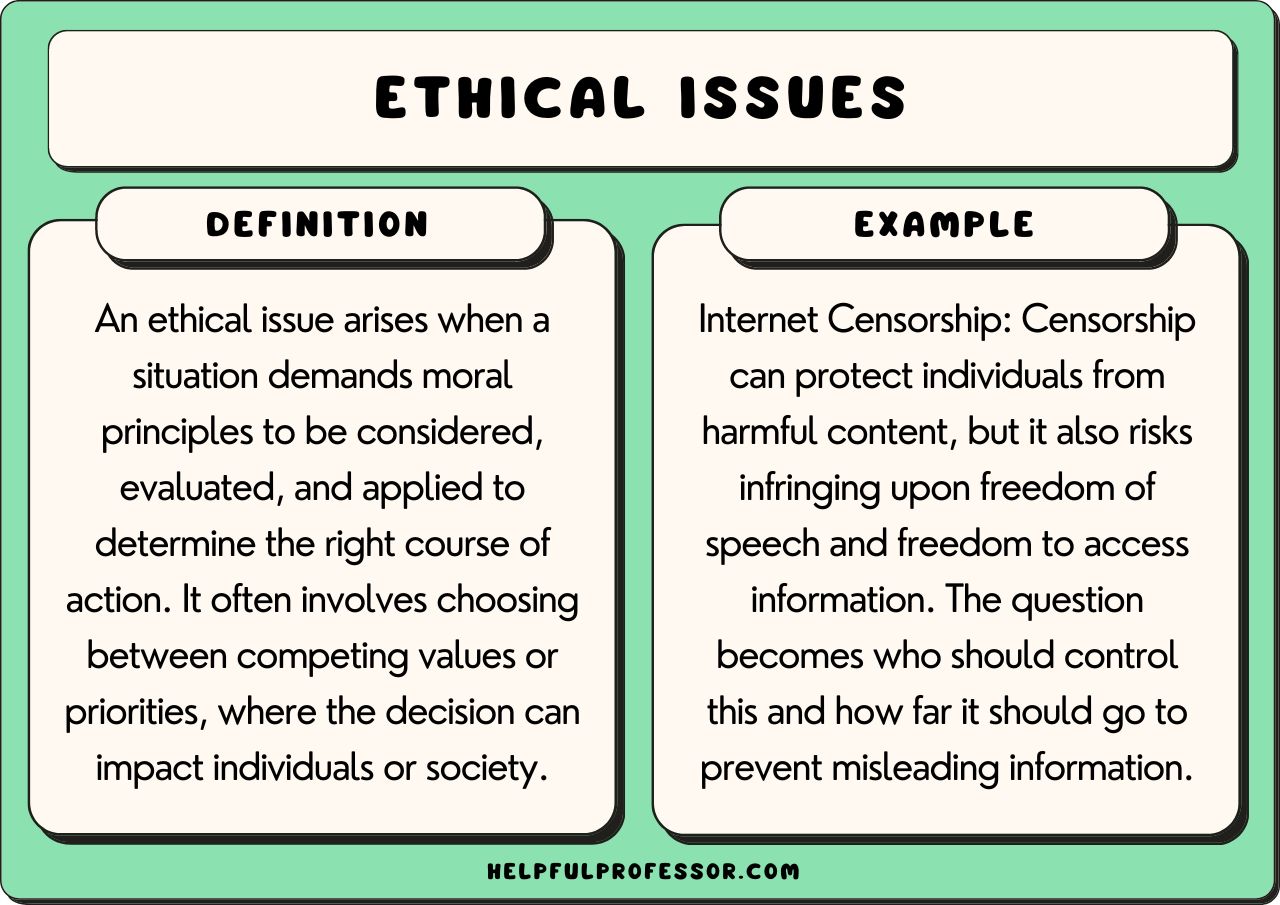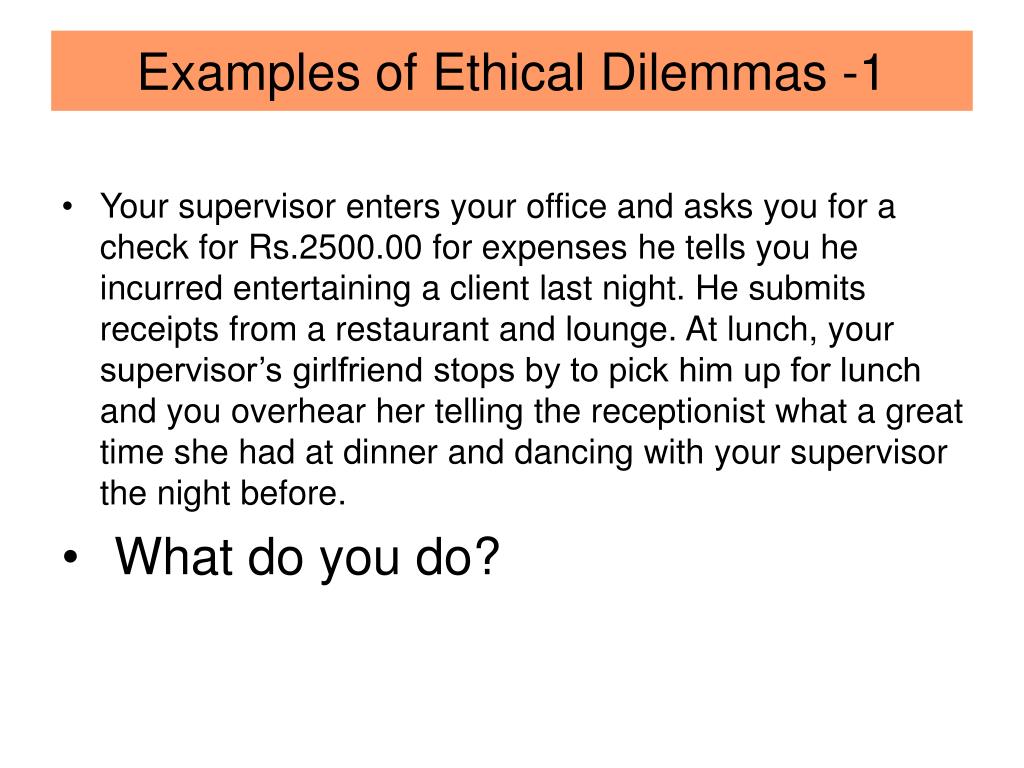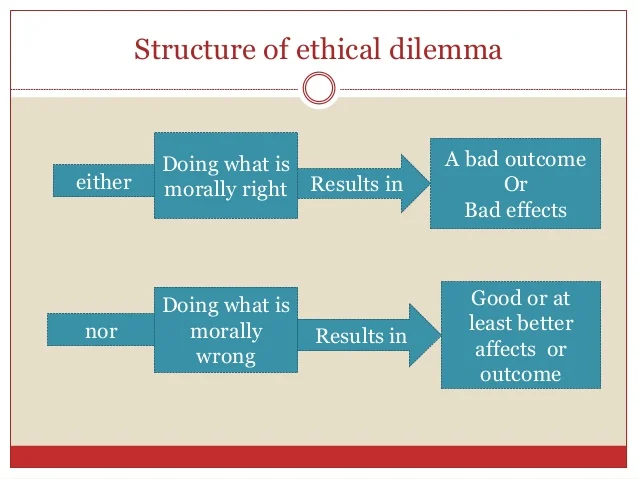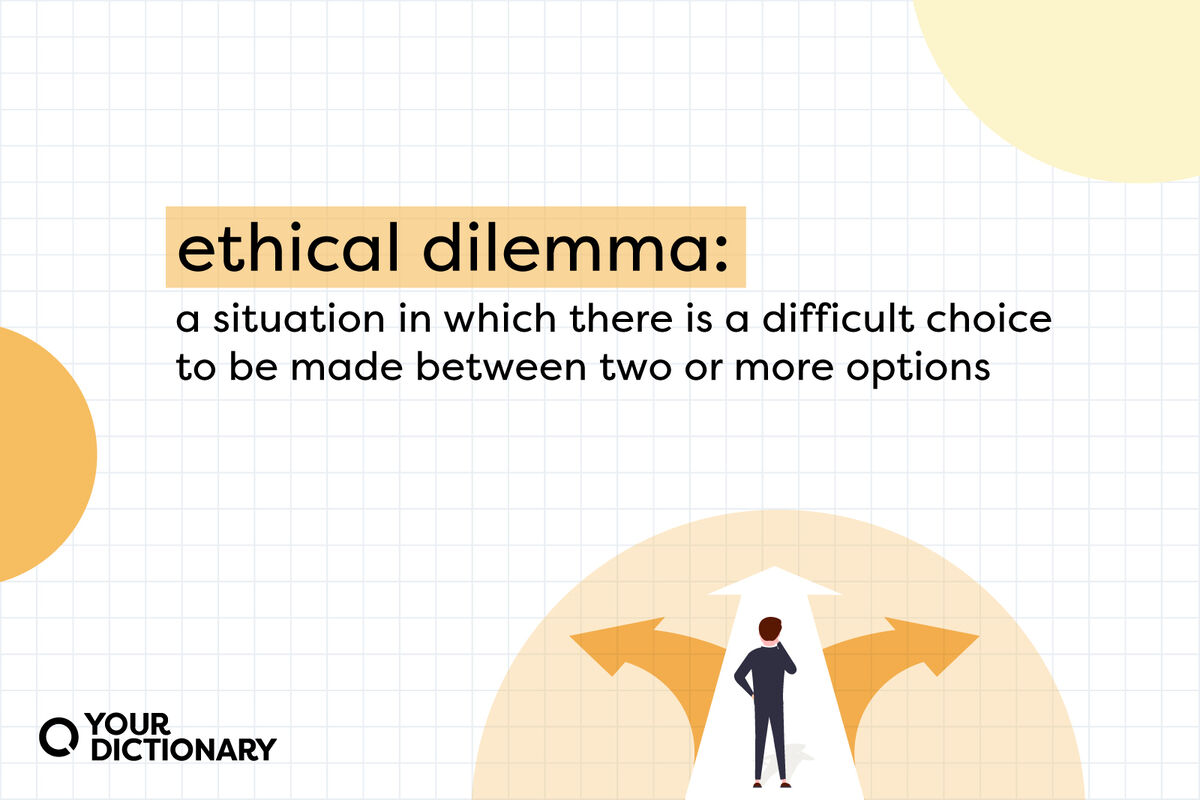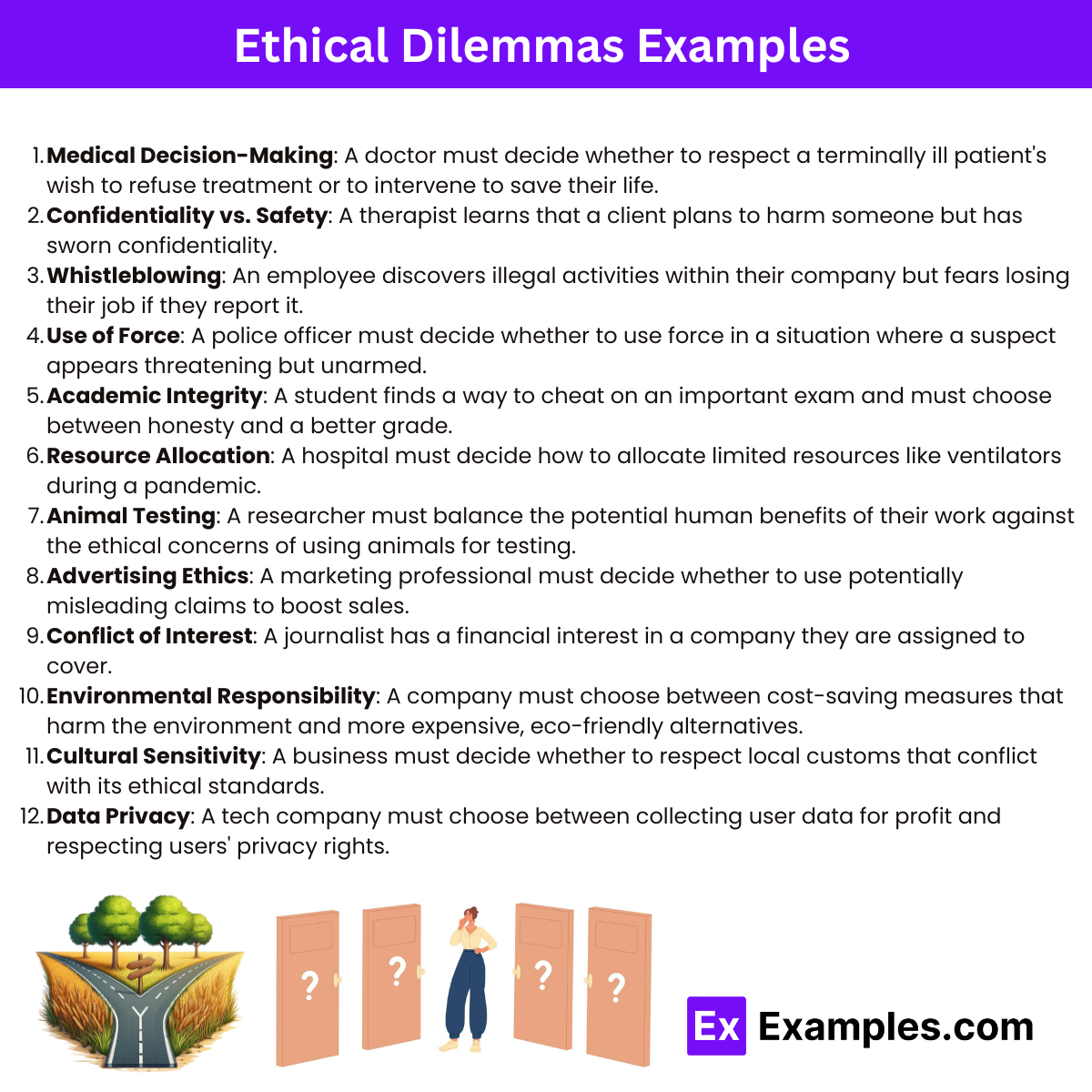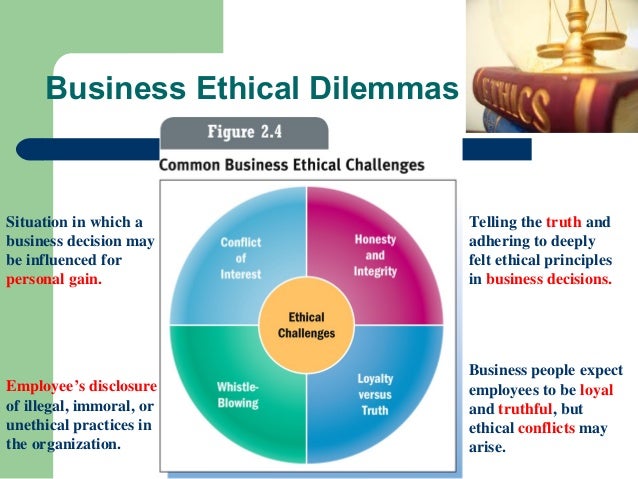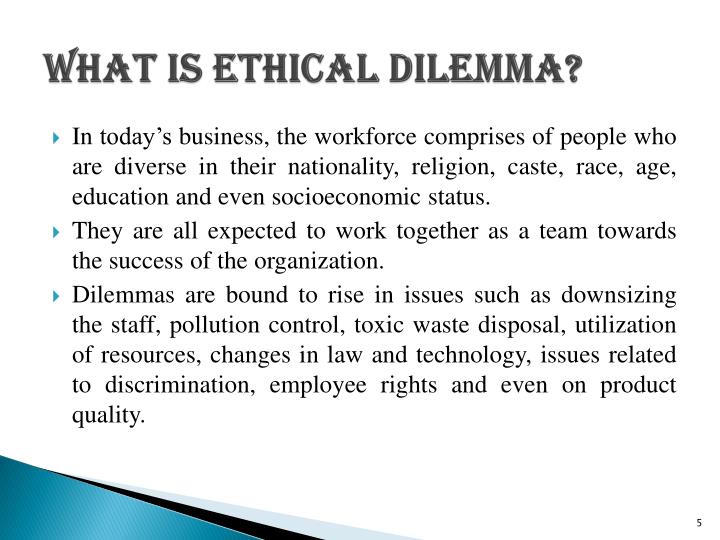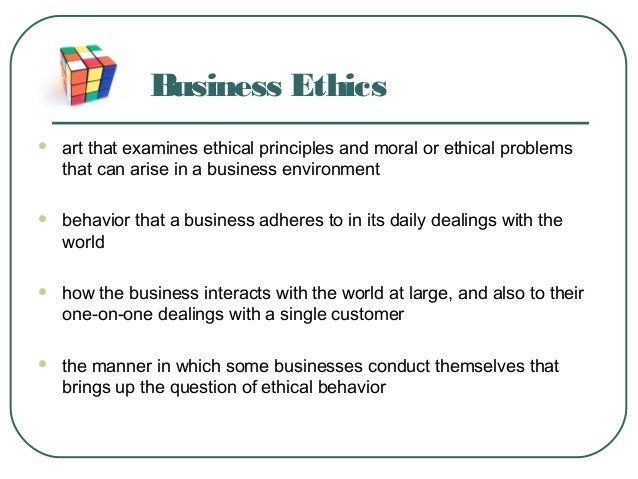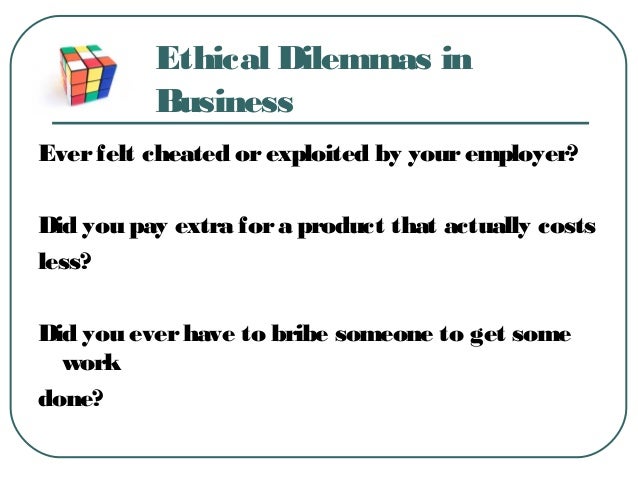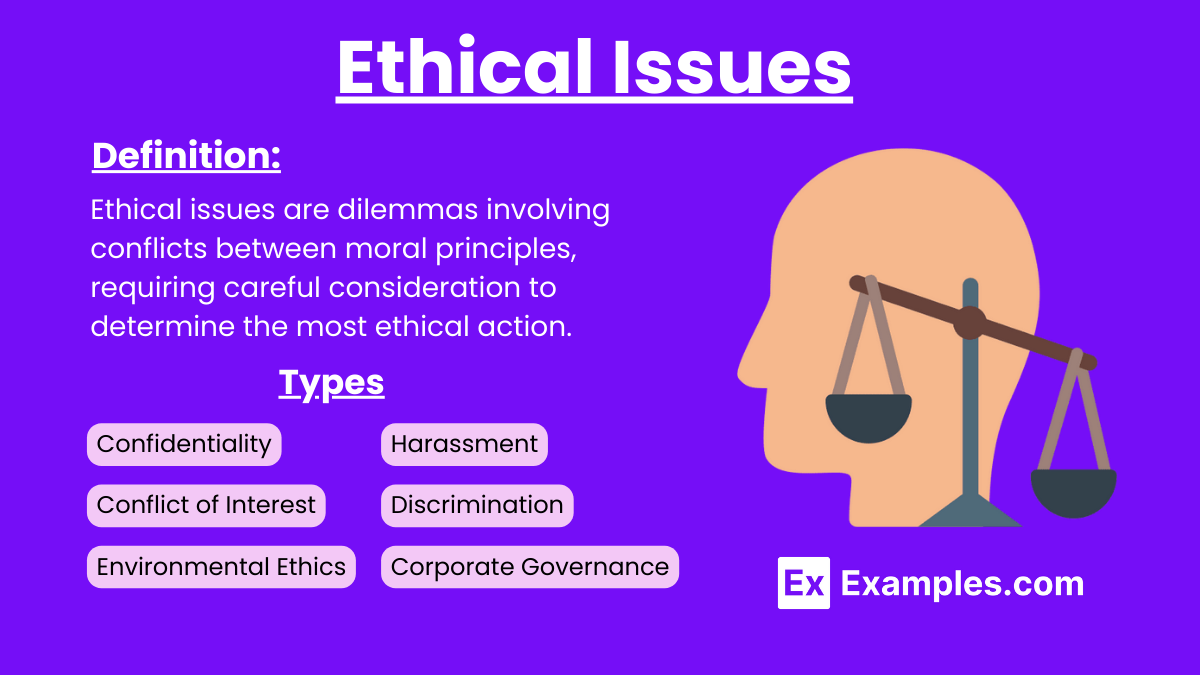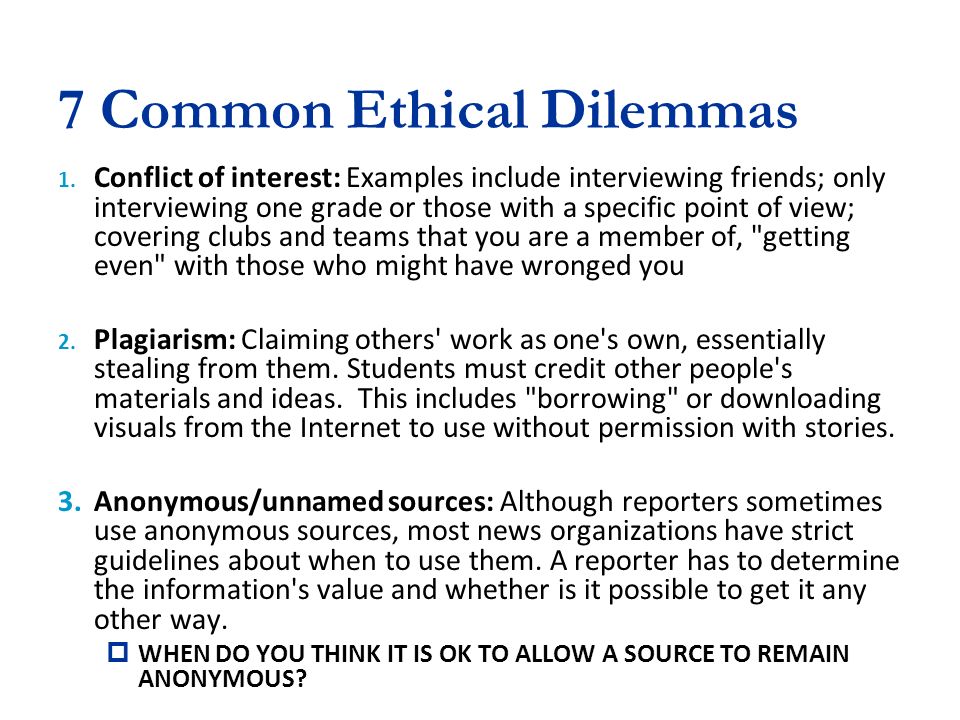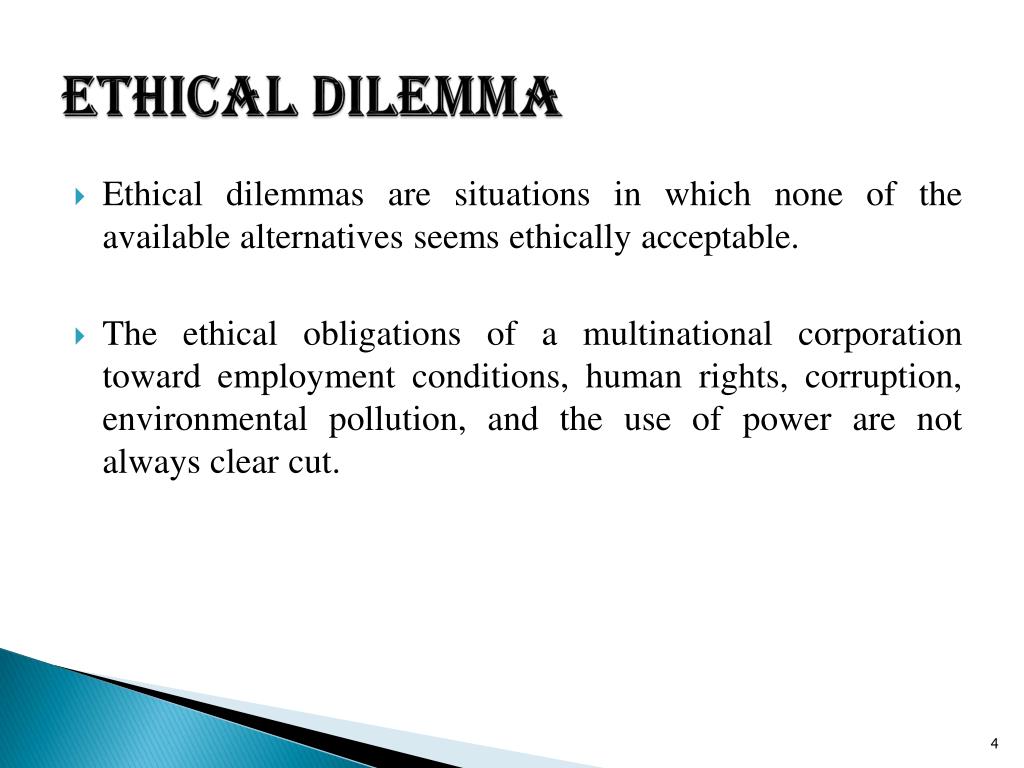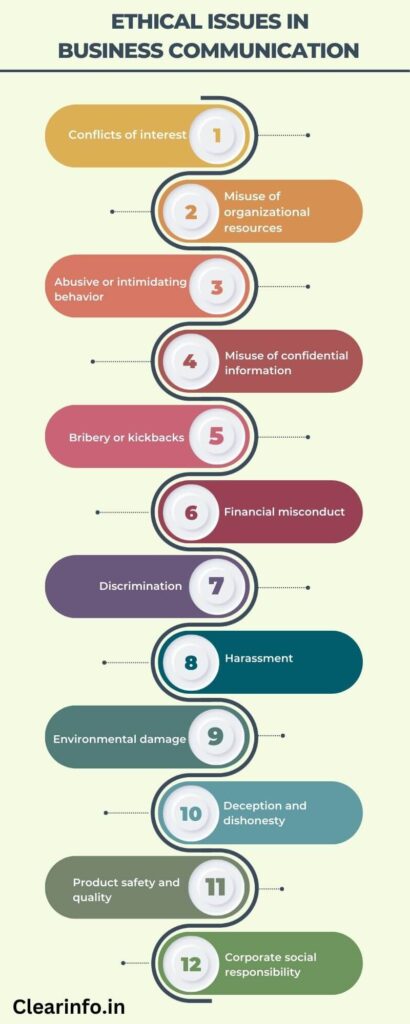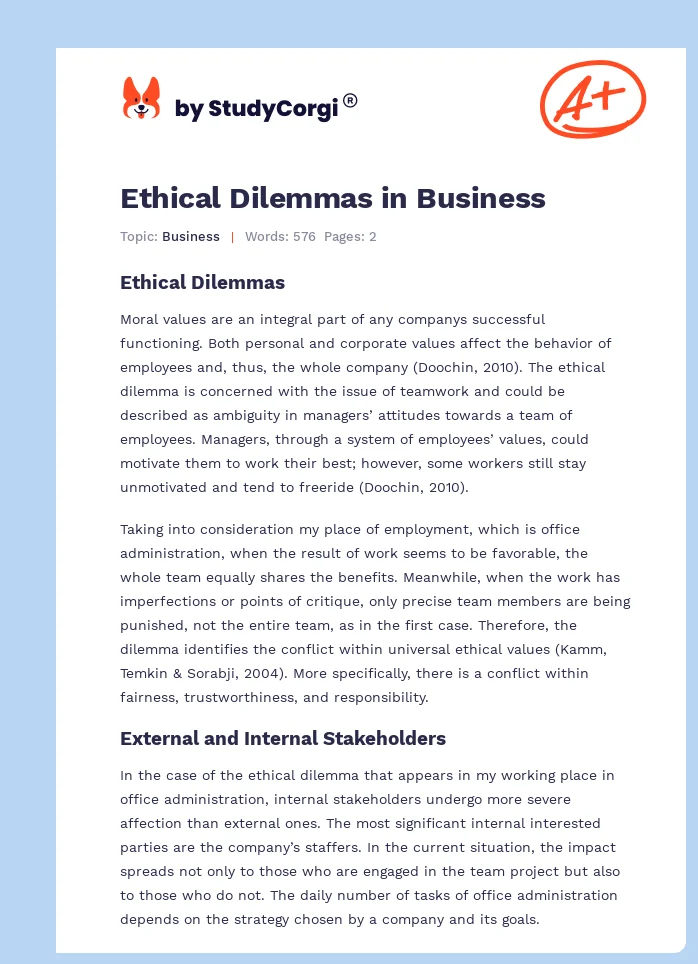Examples Of Ethical Dilemmas In Business
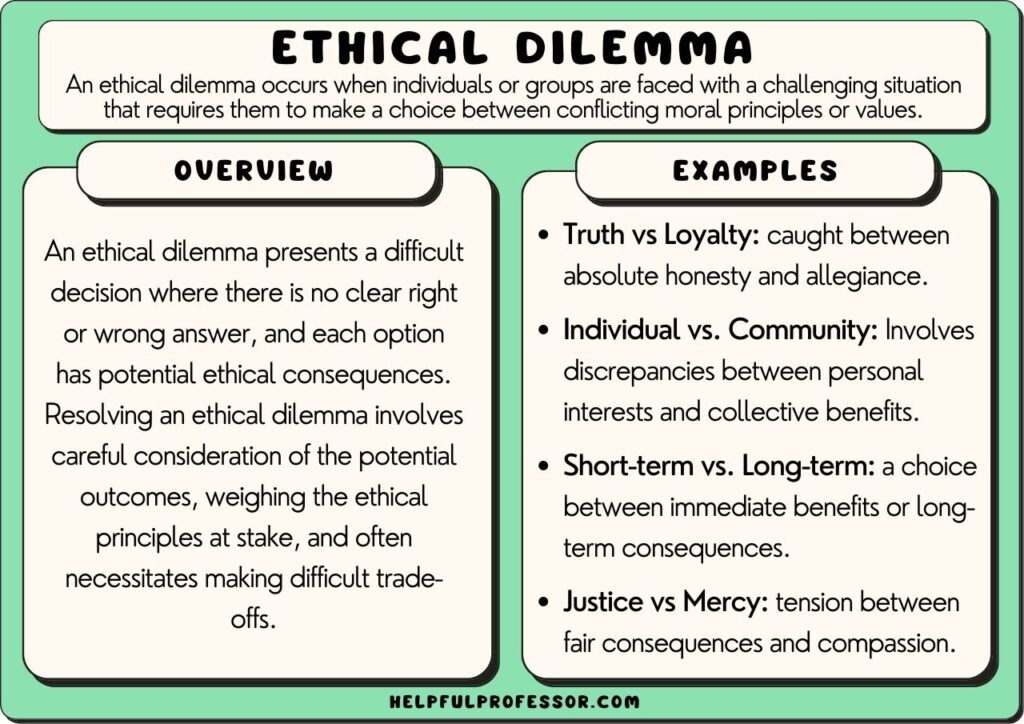
Imagine a bustling office, the air thick with ambition and the murmur of deals being struck. Suddenly, a whisper cuts through the noise: a rumor of manipulated data, a hidden conflict of interest, a questionable shortcut taken to secure a lucrative contract. The hum of productivity falters, replaced by a sense of unease. This is the landscape where ethical dilemmas bloom, often unseen, yet capable of shaking the very foundations of a business.
Ethical dilemmas in business aren't abstract philosophical debates; they are real-world challenges that test the moral compass of individuals and organizations. They force us to confront conflicting values and make difficult choices with far-reaching consequences.
What Makes an Ethical Dilemma?
An ethical dilemma arises when there is no clear-cut "right" or "wrong" answer, and any decision will potentially violate an ethical principle. It involves a conflict between different values or duties, where choosing one option means compromising another.
These dilemmas can be subtle or overt, and they often involve weighing competing interests – profitability versus social responsibility, loyalty to the company versus personal integrity, short-term gains versus long-term sustainability.
Common Scenarios: A Walk Through the Ethical Minefield
Let’s explore some common examples where ethical fault lines appear in business. We'll look at scenarios that highlight how tricky business decision can be.
Conflicts of Interest: Navigating Divided Loyalties
One of the most prevalent ethical dilemmas involves conflicts of interest. This occurs when an individual's personal interests – financial, familial, or social – could potentially compromise their professional judgment or objectivity.
For example, a purchasing manager awarding a contract to a company owned by a close relative presents a clear conflict. This kind of situation requires transparency and often recusal to maintain ethical standards.
Data Privacy and Security: Balancing Innovation with Responsibility
In the digital age, data privacy is paramount. Companies collect vast amounts of data on their customers, raising ethical questions about how this information is used and protected.
Consider a social media company that uses user data to target advertising. While this may be profitable, it also raises concerns about manipulation and the erosion of privacy, especially when the data is used for purposes beyond the user’s explicit consent.
According to a 2023 Pew Research Center study, a majority of Americans feel they have little control over the data collected about them online, highlighting the urgency of ethical data practices.
Fairness and Discrimination: Promoting Equality in the Workplace
Ethical dilemmas also arise in the realm of fairness and discrimination. Companies must strive to create a workplace where everyone has equal opportunities, regardless of their race, gender, religion, or other protected characteristics.
Hiring practices are especially vulnerable to ethical lapses. For instance, relying solely on referrals from existing employees can perpetuate a lack of diversity if the current workforce is homogenous. This can lead to unintentional but harmful discrimination.
Environmental Responsibility: Profit vs. Planet
Businesses face increasing pressure to act in an environmentally responsible manner. However, environmental regulations often come at a cost, creating a tension between profitability and sustainability.
Consider a manufacturing company that could reduce its emissions by investing in new technology. If the investment is significant and the return on investment is uncertain, executives may face a difficult choice between short-term profits and long-term environmental benefits.
However, reports from organizations such as the Environmental Defense Fund increasingly show that sustainable practices often lead to long-term cost savings and enhance a company's reputation.
Intellectual Property: Respecting Innovation
Intellectual property (IP) rights, such as patents and copyrights, are designed to protect innovation. Ethical dilemmas arise when companies are tempted to infringe on these rights to gain a competitive advantage.
For example, a tech company might reverse-engineer a competitor’s product to develop a similar product more quickly. While this may be legal in some jurisdictions, it raises ethical questions about fairness and respect for the competitor’s investment in innovation.
Navigating the Murky Waters
So, how can businesses navigate these ethical minefields? Establishing a strong ethical culture is crucial. This involves developing a clear code of conduct, providing ethics training to employees, and creating channels for reporting ethical concerns without fear of retaliation.
Leaders must set the tone from the top, demonstrating their commitment to ethical behavior in their own actions.
Transparency is key. Organizations should be open and honest about their practices, even when they involve difficult trade-offs. Stakeholder engagement can also help companies understand and address the ethical concerns of their customers, employees, and communities.
Ultimately, navigating ethical dilemmas requires a commitment to critical thinking, empathy, and a willingness to prioritize values over immediate gains. It's about recognizing that ethical behavior is not just good for business, but it is essential for building trust and creating a sustainable future.
The choices businesses make today will shape the world of tomorrow. By embracing ethical principles, organizations can create a more just, equitable, and sustainable future for all.
